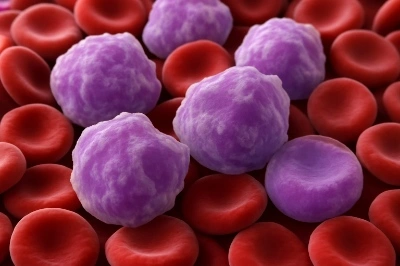Understanding Blood Cancers: From Leukemia to Lymphoma
What happens when your blood, life-sustaining fluid, turns against you? How do you cope when your blood itself is under attack? Why do the words "leukemia" and "lymphoma" spark fear? We get it! You have a lot of concerns regarding blood cancer. This blog will help you understand blood cancer better. So, let's explore:
Understanding Blood Cancer
What is blood cancer ?
Blood cancers, also known as hematologic cancers, affect the production and function of blood cells. It begins in the bone marrow, where blood is produced, and then interferes with the normal development of blood cells.
What are the symptoms of blood cancer??
Blood cancer symptoms can be aggressive. Early signs of blood cancer include fatigue, bruising, swollen lymph nodes, and unexplained weight loss. Symptoms of blood cancer typically appear when abnormal cancerous cells begin to interfere with normal blood cell production or organ function.
What are the types of blood cancer?
The three main types of blood cancers are:
-
leukemia
-
lymphoma
-
Myeloma
What Is Leukemia?
A cancer of the blood and bone marrow, leukemia is characterized by the uncontrolled growth of abnormal white blood cells. It impairs the body's ability to fight infection, carry oxygen, and stop bleeding.
The four main types are:
-
Acute Lymphoblastic Leukemia (ALL)
-
Acute Myeloid Leukemia (AML)
-
Chronic Lymphocytic Leukemia (CLL)
-
Chronic Myeloid Leukemia (CML)
What are the Symptoms of Leukemia?
-
Fatigue and weakness
-
Frequent infections
-
Easy bruising or bleeding
-
Fever or night sweats
-
Swollen lymph nodes
-
Unexplained weight loss
What Is Lymphoma?
Lymphoma is a cancer of the lymphatic system. It includes the lymph nodes, spleen, thymus gland, and bone marrow. It originates in lymphocytes, a type of white blood cell that plays a key role in the immune system.
What are the types of lymphoma?
-
Hodgkin Lymphoma (HL)
-
Non-Hodgkin Lymphoma (NHL)
Symptoms of Lymphoma
-
Painless swelling of lymph nodes
-
Fever and chills
-
Night sweats
-
Unexplained weight loss
-
Fatigue
-
Persistent cough or chest pain
What is Myeloma?
Myeloma, also known as multiple myeloma. It is a type of blood cancer that starts in the plasma cells, a type of white blood cell found in the bone marrow.
What are the Common Symptoms of Myeloma?
-
Bone pain
-
Fatigue
-
Frequent infections
-
High calcium levels
-
Kidney problems
Blood Cancer Causes and Risk Factors
What causes blood cancer? The exact causes of blood cancers are not fully understood, but certain risk factors have been identified:
-
Genetic mutations
-
Exposure to radiation or harmful chemicals
-
Weakened immune system
-
Certain infections
-
Family history of blood cancers
Blood Cancer Diagnosis and Treatment
How to detect blood cancer?? The diagnosis involves blood tests, bone marrow biopsies, imaging tests, and genetic testing. Is blood cancer curable? Yes, early diagnosis can significantly improve outcomes.
Blood cancer treatment depends on the specific type of blood cancer, its stage, and the patient's overall health. Common treatment options include:
-
Chemotherapy: Drugs that kill or stop the growth of cancer cells
-
Radiation Therapy: High-energy rays that target cancer cells
-
Targeted Therapy: Drugs that attack specific abnormalities in cancer cells
-
Immunotherapy: Fight cancer by boosting the body's immune system
-
Stem Cell Transplant: Replaces damaged bone marrow with healthy cells
Why Believers Hospital Excels in Offering Advanced Blood Cancer Treatment
Understanding the basics of blood cancer types helps you recognise early warning signs. Timely diagnostics help with early intervention. With continued advancements in diagnosis and treatment, there's more hope than ever for those affected by blood cancer.
Believers Hospital?, Thiruvalla, has an expert Medical Oncology department that delivers comprehensive care that improves survival rates and quality of life. Upholding compassion and empathy, our Medical Oncologists provide expert care and effectively support our patients to bring them back to life healthily. For optimal treatment delivery, it is important to adopt a multidisciplinary approach in care. At Believers Church Medical College Hospital, Thiruvalla, all cancer cases are discussed in a multidisciplinary tumour board to adopt collective decisions. ?
Early detection saves lives. If your loved one is experiencing symptoms, consult Believer's Hospital now for expert evaluation and care.
